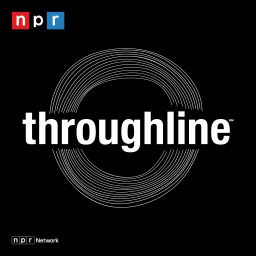
by NPR
In the mid-1970s, the Republican Party looked on the verge of self-destruction. Until 1976. A political earthquake: A cutthroat, razor-close, deeply personal battle for the Republican nomination, and the party's identity. It resurrected the GOP, remade it as a conservative party, and pulled the country sharply to the right. Landslide is the story of the closest presidential primary race in American history, what followed, and how it reshaped the political parties — opening the partisan rifts that divide us today. Hosted by award-winning public radio journalist Ben Bradford.
Language
🇺🇲
Publishing Since
2/12/2024
Email Addresses
1 available
Phone Numbers
0 available

February 27, 2025
How does the internet work to polarize us on an individual level?<br/><br/>As tech and media companies, battle for online engagement, they feed their users — they feed us — content that will grab attention, elicit emotion, and confirm existing beliefs. In a way, it traps everyone in their own bespoke bubble, often without our realizing it.<br/><br/>After previous episodes analyzed the right-wing media ecosystem, Landslide: Engines of Outrage now turns to look outside of it, offering tools for all of us to diagnose our own information diets and fight back against the incentives of an internet built to polarize.<br/><br/>Created and hosted by Ben Bradford.<br/><br/>Learn more about sponsor message choices: <a href="https://podcastchoices.com/adchoices">podcastchoices.com/adchoices</a><br/><br/><a href="https://www.npr.org/about-npr/179878450/privacy-policy">NPR Privacy Policy</a>

February 20, 2025
Librarians in Ukraine. Rural newspapers. A tweak to social media algorithms. The infrastructure of a political campaign. All of these offer lessons about how to beat back misinformation and conspiracy theories. But are they enough to pierce the right-wing media bubble?<br/><br/>This episode looks at solutions — from the anodyne to the unsavory — to defuse the engines of outrage and ultimately bring Americans back to a shared reality.<br/><br/>Created and hosted by Ben Bradford.<br/><br/>Learn more about sponsor message choices: <a href="https://podcastchoices.com/adchoices">podcastchoices.com/adchoices</a><br/><br/><a href="https://www.npr.org/about-npr/179878450/privacy-policy">NPR Privacy Policy</a>

February 13, 2025
In the early 2000s, key tech companies made a series of choices that shaped the future of the internet. They "gave away"" their products "for free." From an initial tweak to Facebook's NewsFeed to conspiracy theories about permanent markers in the 2020 election, that decision — and the relentless hunt for engagement that followed — paved the way for outrage-fueled content, viral conspiracy theories, and polarizing misinformation. And it all supercharged a right-wing media bubble inflated by the same forces.<br/><br/>Part Two of "Landslide: Engines of Outrage" explores how the internet, profit motives, human psychology, and political benefit are fusing together to widen our political divide.<br/><br/>Learn more about sponsor message choices: <a href="https://podcastchoices.com/adchoices">podcastchoices.com/adchoices</a><br/><br/><a href="https://www.npr.org/about-npr/179878450/privacy-policy">NPR Privacy Policy</a>

NPR

The New York Times

Rachel Maddow, MSNBC

Slate Podcasts

Crooked Media

New York Times Opinion

Comedy Central

Crooked Media

WNYC Studios

NPR

iHeartPodcasts

Chris Hayes, MSNBC & NBCNews THINK

The New York Times

CAFE

Danielle Dardashti, Galeet Dardashti
Pod Engine is not affiliated with, endorsed by, or officially connected with any of the podcasts displayed on this platform. We operate independently as a podcast discovery and analytics service.
All podcast artwork, thumbnails, and content displayed on this page are the property of their respective owners and are protected by applicable copyright laws. This includes, but is not limited to, podcast cover art, episode artwork, show descriptions, episode titles, transcripts, audio snippets, and any other content originating from the podcast creators or their licensors.
We display this content under fair use principles and/or implied license for the purpose of podcast discovery, information, and commentary. We make no claim of ownership over any podcast content, artwork, or related materials shown on this platform. All trademarks, service marks, and trade names are the property of their respective owners.
While we strive to ensure all content usage is properly authorized, if you are a rights holder and believe your content is being used inappropriately or without proper authorization, please contact us immediately at [email protected] for prompt review and appropriate action, which may include content removal or proper attribution.
By accessing and using this platform, you acknowledge and agree to respect all applicable copyright laws and intellectual property rights of content owners. Any unauthorized reproduction, distribution, or commercial use of the content displayed on this platform is strictly prohibited.